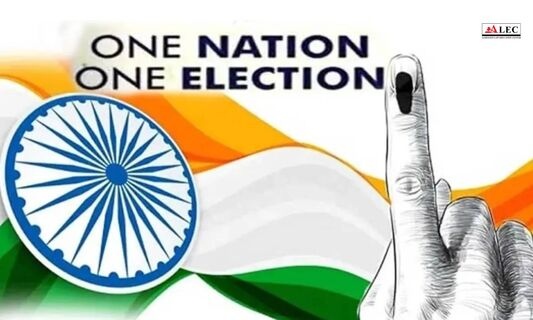Two bills supporting the idea of “One Nation, One Election” “The Constitution 129th Amendment Bill, 2024, and the Union Territories Laws Amendment Bill, 2024” were introduced in the Lok Sabha on Tuesday, December 17, after a vote. Reports suggest that the Union Cabinet has approved the recommendation of a High-Level Committee to hold simultaneous elections for the Lok Sabha, State Assemblies, municipal bodies, and panchayats, all within 100 days of the general elections.
What exactly is this bill
The bill, circulated on December 13, proposes that if the Lok Sabha or a state assembly is dissolved before completing its five-year term, mid-term elections will be held solely to fill the remainder of that term. To implement simultaneous elections for the Lok Sabha and state assemblies, the bill introduces a new Article 82(A) and amends Articles 83, 172, and 327, which deal with the duration of Parliament, state legislatures, and Parliament’s authority to regulate elections. The changes will take effect on an “appointed date” to be notified by the President during the first sitting of the Lok Sabha following the general elections in 2029. From this date, the tenure of the Lok Sabha will begin anew, lasting five years, and the terms of all legislative assemblies elected afterward will align with the Lok Sabha’s tenure.
You can also read the latest judgment by visiting [Latest Judgment].
For more information, visit [Aashayein Enquiry Section]
Reaction of the opposition
The Opposition leaders opposed the introduction of Bills, calling it an “assault” on the “Basic Structure” of the Constitution. Senior Congress leader and former Minister Manish Tewari criticized the bill, calling it unconstitutional. He argued that the bill violates the Constitution’s basic structure, which lies beyond the scope of Schedule 7 and cannot be altered. Tewari described the bill as an attack on the Constitution and demanded its immediate withdrawal.
Following his remarks, other opposition parties echoed similar concerns, stating that the bill goes against the spirit of the Constitution. Key opposition leaders, including “SP’s Dharmendra Yadav, TMC’s Kalyan Banerjee, DMK’s TR Balu, and AIMIM’s Asaduddin Owaisi”, also voiced their strong opposition to the bill.
What Constitutional amendments have been proposed?
The committee also suggested that the Constitution (One Hundred and Twenty-Ninth Amendment) Bill, 2024, alter three articles of the Constitution and add a new one, “Article 82A”, to bring the terms of the State Assemblies and the Lok Sabha into alignment. According to the proposed article, “simultaneous elections” refers to general elections that are held “together” to elect the House of People and all other legislative bodies.
According to the proposed article, the President may implement this article by issuing a public notice on the first day of the House of People's session following a general election. The “date of notification” will be the “appointed date”. Sections 5 of the Government of Union Territories Act 1962, Section 5 of the Government of National Capital Territory of Delhi Act 1991, and Section 17 of the Jammu and Kashmir Reorganization Act 2019 would all undergo consequential amendments as part of the Union Territories Laws Amendment Bill 2024 in order to align the holding of simultaneous elections for the Lok Sabha and State Legislative Assemblies.
The High-Level Committee on One Nation, One Election, which was led by former President Ram Nath Kovind, suggested these proposed reforms. In March of this year, the committee presented its findings to President Droupadi Murmu.
Amit Shah endorces JPC demand
Responding to the demands, Union Home Minister Amit Shah supported the move, stating that when the Cabinet approved the “One Nation, One Election” bill, PM Modi also agreed to send it to a Joint Parliamentary Committee (JPC). Shah added, "When the One Nation, One Election bills were discussed in the Cabinet, PM Modi emphasized that it should be referred to the JPC for a thorough discussion at all levels.”
Impact of the bill
In conclusion, while a unified election cycle promises smoother governance by minimizing interruptions from the Model Code of Conduct and enhancing policy implementation, it also presents significant logistical challenges. The Election Commission will require substantial resources and manpower to manage the increased workload and ensure the seamless execution of simultaneous elections.

